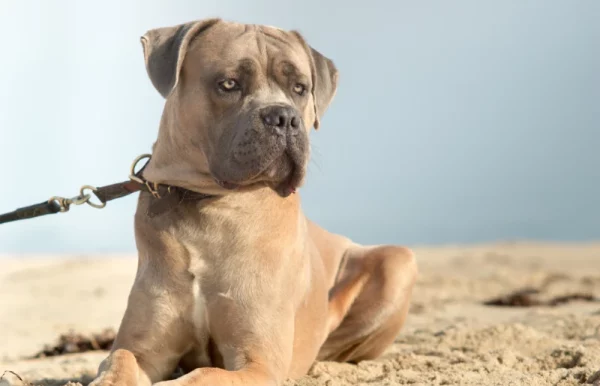Training Cane Corso Puppies: Effective Strategies for Obedience and Socialization
Educating Walking stick Corso young puppies calls for a structured approach that focuses on developing obedience and promoting socialization. By executing proven strategies rooted in favorable reinforcement and tactical socializing techniques, owners can lay a solid structure for their Cane Corso's development and development.
Young Puppy Training Fundamentals

Building Obedience Through Favorable Support
Building obedience in Walking cane Corso young puppies is best accomplished through regular positive support techniques. Favorable support includes fulfilling desirable behaviors to encourage their repetition. When training a Cane Corso pup, it is important to use favorable reinforcement methods such as deals with, appreciation, or play to reinforce great habits.
To effectively build obedience with positive support, it is important to be regular and timely with rewarding the pup. The benefit should be given promptly after the desired habits strikes strengthen the link between the activity and the favorable outcome. In addition, uniformity in awarding the pup for obeying commands assists them comprehend what is expected of them.
Positive reinforcement not only helps in developing obedience however also enhances the bond between the pup and the owner. By linking etiquette with incentives, the pup finds out to depend on and regard their proprietor. This technique produces a favorable learning setting that advertises obedience and improves the overall training experience for both the Walking cane Corso young puppy and the owner.
Socializing Methods for Walking Stick Corsos
When concentrating on establishing well-rounded obedience in Walking stick Corso puppies, incorporating effective socialization strategies is critical for their overall growth and behavior. Socializing plays a vital role in shaping a Walking cane Corso's character, helping them end up being confident, well-adjusted, and pleasant canines. To socialize your Walking stick Corso properly, reveal them to different settings, people, pets, and circumstances from a young age. Regulated interactions with various other canines can educate them proper social abilities and help stop aggressive habits in the direction of unfamiliar dogs.
Present your Walking cane Corso to different stimuli slowly, ensuring positive experiences to construct their confidence. Motivate favorable communications with individuals of varied ages, sexes, and appearances to avoid fear or aggression towards complete strangers. Reveal them to differing noises, atmospheres, and surface areas to avoid anxiousness or terror in brand-new circumstances. Normal socialization not only fosters excellent actions however likewise produces a well-adjusted and adaptable companion for various life experiences. Correct socialization is essential to raising a well-mannered and happy Walking cane Corso.

Addressing Typical Behavior Obstacles
Attending to usual behavior difficulties in Walking cane Corso pups requires a methodical method that focuses on comprehending the breed's propensities and implementing you can look here proper training strategies. Among the usual challenges with Cane Corsos is their tendency towards prominence. To resolve this, proprietors must establish themselves as his comment is here the pack leader via consistent and firm management. Favorable support strategies, such as gratifying etiquette with deals with or appreciation, can assist fit the pup's habits positively.
One more actions challenge seen in Walking cane Corso young puppies is their safety nature, which can cause aggressiveness otherwise correctly taken care of. Early socializing with various other animals and individuals, as well as revealing them to different environments, can assist protect against aggressive propensities from developing. Furthermore, showing them obedience regulates like 'sit,' 'stay,' and 'leave it' can be effective in managing their actions in different situations.
Consistency and persistence are vital when attending to actions obstacles in Cane Corso young puppies. By understanding the type's qualities and using suitable training techniques, proprietors can aid their pups become socialized and well-behaved friends
Advanced Training Methods
To boost the training of Cane Corso pups beyond basic obedience, integrating sophisticated strategies that concentrate on psychological stimulation and physical challenges is crucial. Advanced training strategies aim to further develop the dog's cognitive abilities, physical capabilities, and overall obedience. One effective approach is agility training, which includes browsing obstacle courses, passages, and leaps. This not only boosts the pet's physical conditioning yet also enhances their analytical abilities and responsiveness to commands.

Final Thought
In verdict, training Walking stick Corso young puppies requires a mix of essential obedience methods, favorable reinforcement, and correct socialization. By applying these methods consistently, proprietors can deal with usual behavior challenges and develop innovative training abilities for their dogs. It is important to develop a strong structure of obedience and socializing at an early stage to ensure a well-adjusted and well-behaved Walking cane Corso in the long run.
To successfully educate Cane Corso pups, grasping the fundamental concepts of young puppy training is essential.Resolving common actions difficulties in Walking stick Corso pups needs a methodical method that focuses on recognizing the breed's tendencies and executing suitable training strategies.To enhance the training of Walking cane Corso puppies past basic obedience, including advanced techniques that focus on mental stimulation and physical difficulties is important. By incorporating these sophisticated training strategies, Walking stick Corso pups can reach their full capacity and become well-shaped, loyal friends.
In verdict, training Walking stick Corso young puppies needs a combination of essential obedience strategies, positive reinforcement, and correct socializing.